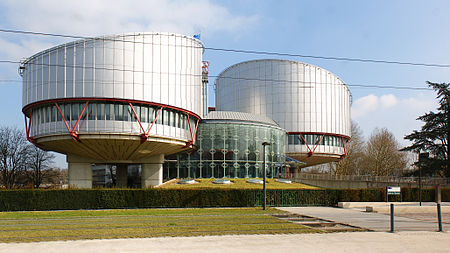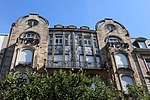European Court of Human Rights

The European Court of Human Rights (ECHR or ECtHR), also known as the Strasbourg Court, is an international court of the Council of Europe which interprets the European Convention on Human Rights. The court hears applications alleging that a contracting state has breached one or more of the human rights enumerated in the Convention or its optional protocols to which a member state is a party. The European Convention on Human Rights is also referred to by the initials "ECHR". The court is based in Strasbourg, France. An application can be lodged by an individual, a group of individuals, or one or more of the other contracting states. Aside from judgments, the court can also issue advisory opinions. The convention was adopted within the context of the Council of Europe, and all of its 46 member states are contracting parties to the convention. Russia, having been expelled from the Council of Europe as of 16 March 2022, ceased to be a party to the convention with effect from 16 September 2022 in accordance with article 58. The court's primary means of judicial interpretation is the living instrument doctrine, meaning that the Convention is interpreted in light of present-day conditions. International law scholars consider the ECtHR to be the most effective international human rights court in the world. Nevertheless, the court has faced challenges with verdicts not implemented by the contracting parties.
Excerpt from the Wikipedia article European Court of Human Rights (License: CC BY-SA 3.0, Authors, Images).European Court of Human Rights
Allée René Cassin, Strasbourg Wacken
Geographical coordinates (GPS) Address Website Nearby Places Show on map
Geographical coordinates (GPS)
| Latitude | Longitude |
|---|---|
| N 48.596666666667 ° | E 7.7741666666667 ° |
Address
Cour Européenne des Droits de l'Homme
Allée René Cassin
67081 Strasbourg, Wacken
Grand Est, France
Open on Google Maps








